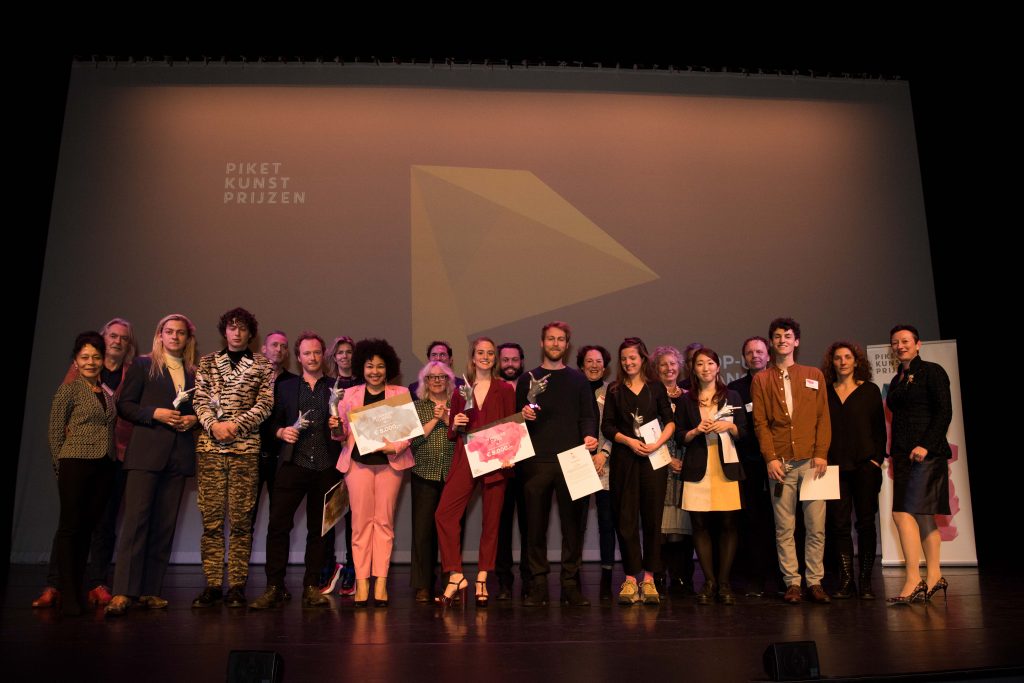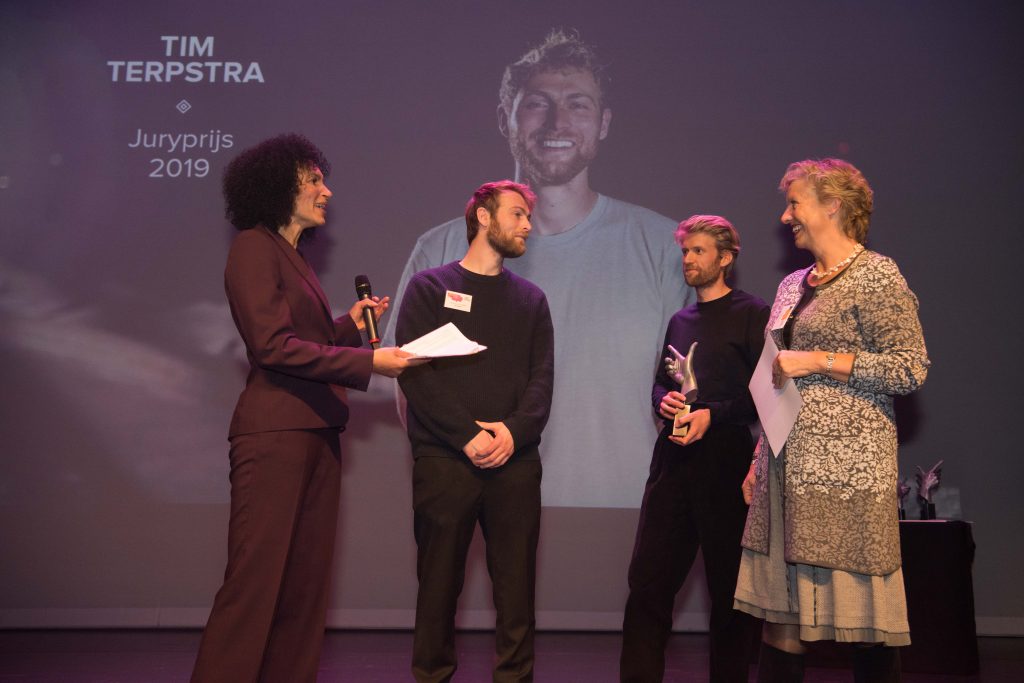Marjolein de Jong, last year’s jury president, considers her presidency a very special experience. She was impressed by the jury members’ expertise and the carefulness of their deliberations. It changed her view. “I have become a different ‘art consumer’.”
A former alderwoman for culture, de Jong has been involved in the The Hague art world in many different ways. “But at that time it was all about policy plans and subventions”, she says, “Being a member of the Piket Art Prizes jury is about trying to find out what makes someone interesting. When you’re directly involved in an art institution, you need to be inspired by ‘your’ makers.’ With a smile she adds: ‘All of a sudden I thought it would be wonderful to be the director of such an institution.”
A good story
“It is really important for artists to think about what they’re doing and to have a good story”, de Jong stresses, as she did during the Awards Ceremony on 25 November of last year. “Despite the very best intentions, you cannot expect everyone to immediately grasp what it is you’re doing. And besides, there are still a lot of people who don’t see why we should put money into art. A bit of explanation, clarification, can make a vast difference, for instance when two cultures meet. I think presenting yourself should be part of your training as an artist,’ de Jong says, ‘Some are good at it, others aren’t. Anyway, you do yourself wrong making beautiful things in an attic without anyone knowing about it. Often it’s the interaction between your story and your work that makes all the difference.”
The nominees and winners of 2019, the jury and the board of the Piket Art Prizes. Foto: Janneke van Beek
Crossing the threshold
According to de Jong, The Hague has much to offer in the field of art. “First of all, The Hague is home to the best dance company in the Netherlands. And what the National Theatre does is of course great, too.” She expects the new educational and cultural complex on the Spui (which, from 2021, will house the Residentie Orchestra, the Netherlands Dance Theatre, and the Royal Conservatoire) to have a huge impact on The Hague. “As things are now, the Conservatoire somewhat has its back to the city. And actually the same holds true for the Royal Academy of Art. Students often left the moment they graduated.”
What will make the new complex unique, de Jong thinks, is uniting top-level music theatre and education within one building. “And there will be room for the hospitality industry, too, so that you can just walk in and have a cup of coffee. We should be able to make everyone feel at home there, without lowering standards.” De Jong always saw the importance of making people cross the threshold, for instance by stimulating secondary schools to have their end-of-year performance at a ‘real’ theatre. “Once you’re inside, you’ll just see it’s not ‘scary’ at all.” She hopes the new complex will be able to play that role.
Marjolein de Jong (right) after Tim Terpstra got the Piket Jury Award. Foto: Janneke van Beek
Looking ahead
Whether ‘Piket Art Prizes’ is already a household word in The Hague? “That’s a little too early to say,’ de Jong finds. ‘But the artists know about it, which is already significant.”
In 2018 the Piket Art Prizes celebrated its fifth anniversary. Looking ahead to the tenth anniversary, de Jong thinks it would be a wonderful occasion for bringing together former nominees and winners and organize a great full evening performance. – the Piket Art Prizes Foundation cherishes all its nominees. “In any case,’ de Jong says cheerfully, ‘I’ll be in the house again this year on the last Monday in November, even though I won’t be on stage this time.”
Text: Anna Beerens, Photo: Hessel Waalewijn


